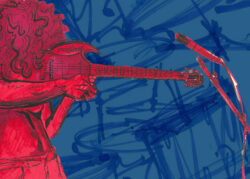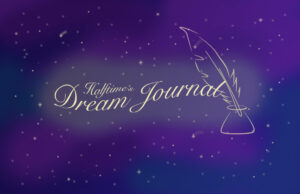If you’re anything like me, you’ve got a bookshelf full of books in your room at home just begging to be read. For holidays and birthdays, family members and friends contemplate gifts and immediately think “book.” You’ve done a fair bit of collecting yourself over the years, as used bookstores seem to be your weakness. There’s not nearly enough time possible to read all of the books, so they just keep piling up.
This summer, I decided to make a dent in my bookshelf. My plan is to read as many books from it as possible and write about the experience. So as soon as I got home for the summer (after sleeping for a solid 12 hours straight), I took stock of everything living on my bookshelf. I decided I’d start with the book that has been there the longest: Pygmalion by George Bernard Shaw.
Pygmalion was originally a play, first performed in 1913, but it has since been adapted into a children’s book. This book has been on my bookshelf since I was a really little kid. It’s an “Illustrated Classics” version, with what looks like 22-point font and cheesy drawings interspersed throughout. But I decided to give it a go.
The first thing I noticed was the back cover, which describes female lead character Eliza Doolittle as “poor, dirty, and uneducated, with little hope for a better life.” Even just looking at that, I felt like I was in for quite a ride.
So here’s the book’s basic plot: Eliza Doolittle, a 20-year-old girl who sells flowers on a street corner, meets Professor Henry Higgins, who studies linguistics. Higgins makes a bet with his friend Colonel Pickering that he can transform Eliza from an uneducated girl with an improper manner of speaking into a passable duchess for the ambassador’s garden party six months in the future. So, Higgins coaches Eliza and basically accomplishes his goal of “improving” her speech. But he doesn’t really foresee the consequences of turning her into an in-between—too fancy now to fit into her old neighborhood, but without the income to maintain a lifestyle correspondent with her new manners.
After reading this book, I’m left with a lot of conflicting feelings. At times, the language Shaw used made me very uncomfortable, but at other times, I found myself pleasantly surprised. I’m left with a big question—is Eliza a feminist role model?
When Eliza is first introduced, she’s described as “just as pretty as any of the ladies that surrounded her, but much less stylish and much more dirty,” with a “very uneducated manner of speaking.”
Eliza cries and screams a lot. 18 times in 16 chapters, or 185 pages, to be exact.
Upon their first meeting, she mistakes Professor Higgins for a policeman and flies into hysterics, sobbing and begging him not to arrest her. And throughout the book, she responds to difficult problems by screaming wordlessly. And I can’t help but think how ridiculous it is that a man who won the Nobel Prize in Literature can’t make his female character say much more than “Ah-ah-ow-ow-oo!” in response to conflict.
In reaction to her frequent crying, Higgins even says, “That’s all you’ll get from Eliza. Yelling and shouting. There’s no use in explaining things to her.”
She’s also often described as helpless and undeserving or unused to nice treatment. She initially rejects the room she is offered in Higgins’s house because “it’s much too good for the likes of me. I’d be afraid to touch anything.” Comments like this made me aware of Eliza’s ingrained lack of self-worth or acknowledgement of her own value.
Additionally, Higgins treats her like a child, persuading her to let him teach her with the temptation of chocolate. When she starts to say something, he stuffs a piece of chocolate in her mouth. He literally blocks her from speaking, showing that he thinks of her as less intelligent and more susceptible to childish instincts because she comes from an uneducated background.
But I think it’s significant that Higgins is an obviously sexist and rude character, which is acknowledged by both himself and other characters throughout the book.
Higgins’ own mother doesn’t want him to attend her parties because he offends the guests with his rudeness. She also condemns his treatment of Eliza, wondering “how she could have raised someone so insensitive to the consequences of his words and actions.”
George Bernard Shaw certainly doesn’t paint him as the innocent good guy, and I think the reader is meant to realize that the way he treats Eliza is wrong.
His demeaning way of addressing Eliza is confronted directly and unsubtly. He gives her money on the street corner and says, “Now be a good girl and don’t be troublesome.” At varying times, he refers to Eliza as a “silly girl,” “creature,” and a “poor animal” in response to her inability to say the alphabet properly.
When Eliza asserts that she has just as much of a right to be where she is as Higgins does, he responds, “A woman who utters such nonsense as you has no right to be anywhere. Keep in mind that your native tongue is the language of Shakespeare. Don’t sit around and babble like an uneducated pigeon!” In response, Eliza screeches, “Ah-ah-ah-ow-ow-oo!”
On multiple occasions, Higgins physically threatens her, blocking her from leaving rooms and claiming he’ll drag her around by the hair if she mispronounces a word. Whether or not he actually intends to carry out these threats, they still cause Eliza immense distress. He demonstrates his massive savior complex when he rejects Eliza’s defiant attitude, saying, “This is the thanks I get for trying to pull you out of the gutter and make a lady of you.”
At one point, Higgins even says, “All young women are idiots.”
However, despite painting Higgins’ behavior in a negative light throughout the book, Shaw justifies his treatment of Eliza by saying, “He was very rude, but meant no harm to the girl.”
On the other hand, Eliza is defiant and doesn’t accede to Higgins’ demands blindly. When the two first meet and she believes he has impugned her character with insults about her way of speaking, she says, “‘E’s no right to take away my character… My character’s just as good as any lady’s!”
She calls Higgins a brute and a bully, asserting that she won’t come live in his house if she doesn’t want to and that she won’t tolerate being “walloped,” which he threatens to do. She doesn’t just submit to his demands. She makes her voice heard. When Higgins suggests she get married to establish a stable future for her, she says, “I sold flowers, not myself.”
Eliza also views marriage in a more egalitarian way than would be traditionally expected in Victorian England. When talking about a potential suitor, Higgins asks, “Can he make anything of you?” Eliza responds, “Maybe I could make something of him. But I don’t want us to make anything out of each other. I just want to be natural.”
But the end of the book is when things get really strange.
Eliza wins Higgins’ bet for him, convincingly pulling off her duchess act. Afterwards, he basically casts her aside, never thanking her for anything. Higgins doesn’t even think of it because he attributes all his success to his own skill in training her.
He tries to put Eliza in her place when she asserts her right to be treated with respect: “I created this thing out of the squashed cabbage leaves of Covent Garden. Now she pretends to play the fine lady with me!”
Even so, there’s a strange implication of some sort of romance at the end, with Higgins claiming he’ll miss Eliza if she leaves, that he’s grown accustomed to having her around and that he even likes her face and voice. Eliza responds, “You do know how to twist a girl’s heart.”
Eliza even goes so far as to say, “I don’t care how you treat me or if you swear at me. I just won’t be passed over as if I were nothing.”
So, despite her defiance and her demands of respectful treatment, she just wants his acknowledgment and attention? Thankfully, they don’t end up together at the end of the book. But it’s still clear that Eliza cares deeply for Higgins and that they will retain a relationship.
What on earth is George Bernard Shaw’s message with this book? Does he condemn the sexism expressed to Eliza? Or is he complicit in it by even writing a book in such a way?
Shaw characterizes Eliza as an inarticulate woman who is quick to cry and scream uncontrollably in rage, so in some ways she plays into the stereotypical depiction of a hysterical woman. But she’s also defiant and resistant to Higgins, refusing to censor or temper her reactions for his benefit, so maybe she’s feminist-adjacent?
After reading this book, I can’t help thinking what I would have thought if I had read it as a kid. Now, I’m more discerning and can pick out sexist garbage for what it is, but what if I read this when I was less aware and more easily influenced? Would I have internalized some of the sexism expressed to Eliza? Or would I have emulated and respected her defiance?






